A list of films produced in Russia in 1992 (see 1992 in film).

Robert Reiner is an American actor and filmmaker. As an actor, Reiner first came to national prominence with the role of Michael "Meathead" Stivic on the CBS sitcom All in the Family (1971–1979), a performance that earned him two Primetime Emmy Awards.

Steven Frederic Seagal is an American actor, producer, screenwriter, martial artist, and musician. A 7th-dan black belt in aikido, he began his adult life as a martial arts instructor in Japan and eventually ended up running his father-in-law's dojo. He later moved to Los Angeles where he had the same profession. In 1988, Seagal made his acting debut in Above the Law. By 1991, he had starred in four films.
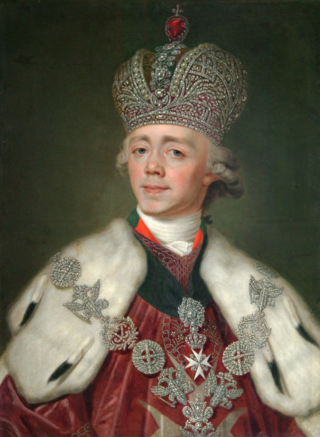
Paul I was Emperor of Russia from 1796 until his 1801 assassination. Paul remained overshadowed by his mother for most of his life. He adopted the laws of succession to the Russian throne—rules that lasted until the end of the Romanov dynasty and of the Russian Empire. He also intervened in the French Revolutionary Wars and toward the end of his reign, added Kartli and Kakheti in Eastern Georgia into the empire, which was confirmed by his son and successor Alexander I.
The year 1992 in film involved many significant film releases.
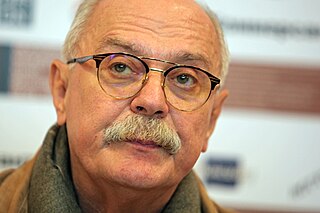
Nikita Sergeyevich Mikhalkov is a Russian filmmaker, actor, and head of the Russian Cinematographers' Union. Mikhalkov is a three-time laureate of the State Prize of the Russian Federation and is a Full Cavalier of the Order "For Merit to the Fatherland".

Sergei Vladimirovich Bodrov is a Russian film director, screenwriter, and producer. In 2003 he was the President of the Jury at the 25th Moscow International Film Festival.
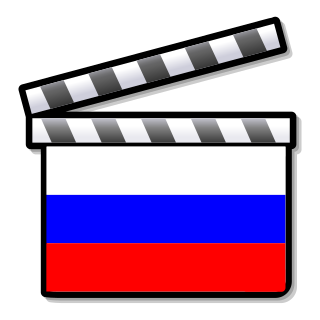
The cinema of Russia, popularity known as Mollywood, refers to the film industry in Russia, engaged in production of motion pictures in Russian language. The popular term Mollywood is a portmanteau of "Moscow" and "Hollywood".
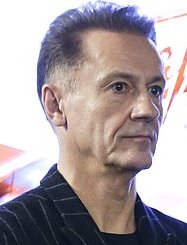
Oleg Evgenyevich Menshikov, PAR is a Russian actor, theatre director and occasional singer. He is the current artistic director of the Yermolova Theatre in Moscow.
The Nika Award is the main annual national film award in Russia, presented by the Russian Academy of Cinema Arts and Science, and seen as the national equivalent of the Oscars.

Paint-on-glass animation is a technique for making animated films by manipulating slow-drying oil paints on sheets of glass. Gouache mixed with glycerine is sometimes used instead. The best-known practitioner of the technique is Russian animator Aleksandr Petrov; he has used it in seven films, all of which have won awards.
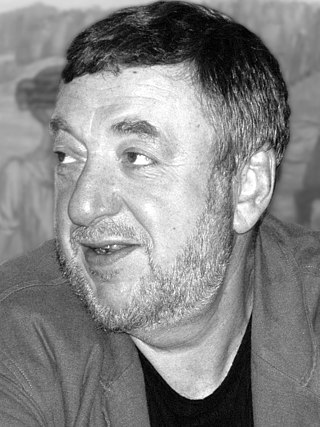
Pavel Semyonovich Lungin is a Russian film director. He is sometimes credited as Pavel Loungine. Lungin was awarded the distinction People's Artist of Russia in 2008.
An Independent Life is a 1992 Russian film directed by Vitali Kanevsky. It is the second in a trilogy of autobiographical films. The film was an international co-production between companies in Russia, France and the UK, including StudioCanal and PolyGram Filmed Entertainment. It tied with Dream of Light to win the Jury Prize, the third most prestigious award of the event, at the Cannes Film Festival in 1992.
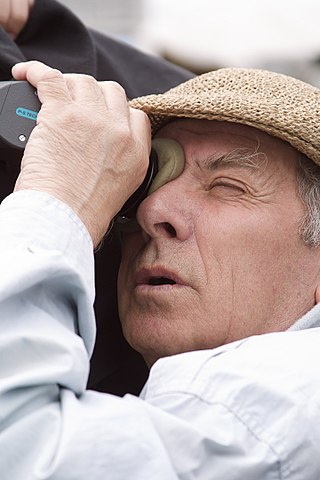
Pyotr Yefimovich Todorovsky was a Russian film director, screenwriter and cinematographer of Jewish origin. His son Valery Todorovsky is also a film director.
Soviet parallel cinema is a genre of film and underground cinematic movement that occurred in the Soviet Union in the 1970s onwards. The term parallel cinema was first associated with the samizdat films made out of the official Soviet state system. Films from the parallel movement are considered to be avant-garde, non-conventionalist and cinematographically subversive.
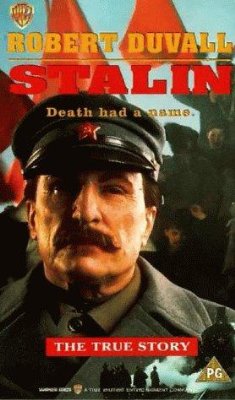
Stalin is a 1992 American political drama television film starring Robert Duvall as Soviet leader Joseph Stalin. Produced by HBO and directed by Ivan Passer, it tells the story of Stalin's rise to power until his death and spans the period from 1917 to 1953. Owing to Soviet leader Mikhail Gorbachev's policies of glasnost and perestroika, producer Mark Carliner was able to receive permission to film in the Kremlin, becoming the first feature film to do so.
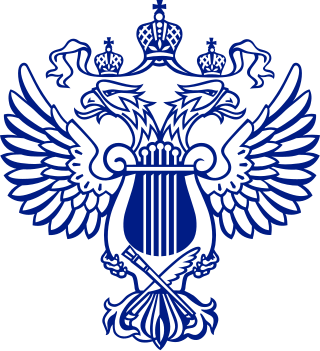
The Ministry of Culture of the Russian Federation is a ministry of the Government of Russia responsible for state policy in cultural spheres such as art, cinematography, archives, copyright, cultural heritage, and censorship.